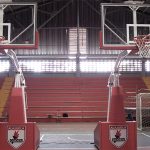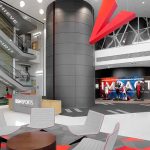Billabong has sold a 48.5 percent share of its Nixon brand to the private equity firm Trilantic Capital Partners, will close up to 150, or 20 percet, of its stores and slash its dividend in a bid to bolster its finances, according to a statement released by the company Friday.
raisings and operational improvements.
The review has resulted in initiatives that include:
- the partial sale of Nixon Inc. (“Nixon”);
- a review of the Group’s retail network with a view to closing loss-making stores and stores performing below expectations;
- a cost-cutting program; and
- a reduced dividend and fully underwritten dividend reinvestment plan.
The outcomes of the review will significantly strengthen the company’s financial position.
Partial sale of Nixon
Billabong has entered into definitive agreements with Trilantic Capital Partners (“TCP”) to establish a joint venture for Nixon, which design, distributes and markets watches and other youth accessories. Under the joint venture, Billabong will retain 48.5% of Nixon, while TCP will purchase 48.5% and Nixon’s management will purchase 3.0%.
There are numerous strategic benefits of the transaction to Billabong:
- Addresses Billabong’s capital structure issues: The partial sale represents an enterprise value of approximately US$464 million for Nixon and results in net proceeds to Billabong of approximately US$285 million1. 100% of net proceeds will be used to pay down debt. This transaction is expected to result in a significant one-off gain in the Group’s income statement in the year ending 30 June 2012, which cannot be calculated at this point in time as the transaction has not been completed.
- Highly attractive multiple: The offer represents a multiple of approximately 9.2x LTM EBITDA2, reflecting the strength of the Nixon brand and the value inherent within Billabong’s portfolio of brands.
- Billabong retains exposure to future upside in Nixon: As an ongoing 48.5% shareholder in Nixon, Billabong will continue to benefit from the strong forecast future growth of the Nixon brand. In addition, Billabong has the opportunity to share in proceeds in the future from any potential further sell-down.
- Billabong retains a supply agreement: Billabong has secured a long-term supply agreement with Nixon going forward, providing ongoing access to Nixon product for company-owned retail stores.
- Nixon able to focus on growth: Nixon will be a stand-alone business focused on continued growth into areas such as Billabong’s core action sports channel, as well as high-end department stores, quality electronics stores and other channels.
As a result of the transaction, Nixon will no longer be consolidated in Billabong’s accounts. The loss of Nixon’s earnings contribution will be more than offset by Billabong’s share of JV profits and the benefits which will flow from the other initiatives announced today.
The transaction is expected to close within 90 days, subject to certain anti-trust approval and customary closing conditions.
Closure of underperforming retail stores
Billabong continues to believe in its multi-brand retail strategy that complements the company’s wholesale business.
Billabong has 677 company owned stores worldwide and more than 11,000 wholesale doors. The company’s profitable stores had an average EBITDA margin of 17.8% in the first half of FY 2012. However, there are also a number of loss-making or under-performing stores, whose weak performance has been largely driven by the challenging retail environment.
As such, Billabong is undertaking a review of its retail network with a view to closing loss-making stores and stores performing below expectations. While the review remains a work in progress, it is expected that the number of store closures will fall somewhere in the range of 100 to 150 stores.
It is expected that some of the leases associated with the stores to be closed are due for renewal by 30 June, 2013. Billabong will either not renew or accelerate the exit from these leases.
As part of this review, Billabong is targeting a range of A$20 million to A$30 million reduction in rent expense and a resultant increase in EBITDA in the range of A$5 million to A$10 million for FY 2013. The closures will result in a one-off charge in the company’s income statement in FY 2012, which cannot be calculated at this point in time.
Cost reduction program
From and including FY 2013, Billabong will reduce annual costs by approximately A$30 million. The savings will come from all regions and all areas of the business, including head office overheads; supply chain rationalisation; retail corporate overheads; and streamlining the company’s marketing expenditure.
The store closures mentioned above and the cost reduction program will result in full-time and casual job losses. Full-time job losses will be approximately 400 worldwide, including up to 80 in Australia. The company will seek to minimise forced job losses by redeploying staff from closed stores to other Billabong retail stores wherever possible and through natural staff attrition. The fluctuating nature of seasonal retail and the timing of store closures will impact the ultimate number of casual job losses.
Dividend reduction and underwritten dividend reinvestment plan
Given the uncertain operating environment, Billabong will reduce its dividend payout ratio for the FY 2012 interim dividend to approximately 25% and re-implement its dividend reinvestment plan,
which will be fully underwritten.
Recent events
The Board considers it needed a certain transaction to address Billabong’s balance sheet issues, in particular to avoid any potential breach of its bank covenants. It was concluded that the partial sale of Nixon was the best of the actionable available alternatives and hence in the best interest of the company and its shareholders. Billabong undertook a competitive process over several months in order to achieve a binding and definitive agreement for the partial sale of Nixon.
Earlier this week, the company received a non-binding, indicative proposal from TPG Capital to acquire all of the shares in the company for A$3.00 cash per share. That proposal was not certain it was subject to due diligence, subject to finance and conditional on a number of other matters, including Billabong not selling down its ownership interest in any of its brands, and exclusivity. In the absence of certainty, Billabong has proceeded with the partial sale of Nixon in order to stabilise its balance sheet.
Since it was founded in 2009 by former principals of Lehman Brothers Merchant Banking, TCP has been active in the active lifestyle industry. After selling its holdings in bicycle components maker SRAM, LLC in July 2011 for $578 million, it acquired in November Implus Corporation, which owns the SofSole, Hotties, Highgear, Yaktrax and other accessories brands
Goldman Sachs is acting as financial advisor to Billabong.















